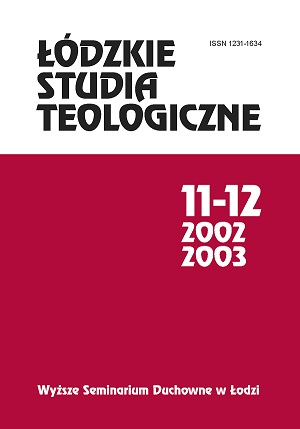
Recenzja: Księgi wpisów archidiecezji warszawskiej z lat 1848–1861 jako źródło historyczne
The review of: Ks. Stanisław Banach, Księgi wpisów archidiecezji warszawskiej z lat 1848–1861 jako źródło historyczne, Dalików–Łódź 2002, ss. 126.
More...We kindly inform you that, as long as the subject affiliation of our 300.000+ articles is in progress, you might get unsufficient or no results on your third level or second level search. In this case, please broaden your search criteria.

The review of: Ks. Stanisław Banach, Księgi wpisów archidiecezji warszawskiej z lat 1848–1861 jako źródło historyczne, Dalików–Łódź 2002, ss. 126.
More...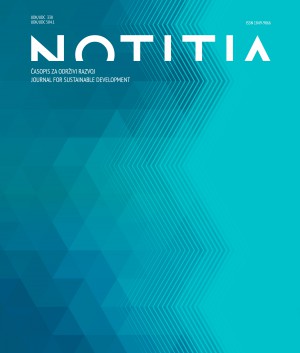
For years, the Republic of Croatia has been faced with the challenge of sustainability of its health care system due to the inefficiency of public health care institutions. It is generally believed that such development is the cause of health care system structure itself, which provides health care to all citizens. This paper seeks to explore whether public health care institutions can be more effective despite the system structure itself. The basic premise of the paper is that public health care institutions are ineffective because of the agent theory impact. In order to examine that premise, it is necessary to compare public and private health care institutions. The aim of this paper is to find out whether there is a greater impact of the agent theory in public health institutions in regard to different influence of private and public ownership on the management methods. The research methodology refers to the financial analysis of selected private and public health institutions. The examination of the professional qualification of managing directors of these institutions showed that there are no major differences in the share of experts in the field of economics in private and public institutions. Efficiency analysis based on the specific institutions shows that public health institutions are more ineffective than the private ones when it comes to cost management. Based on this, the conclusion is that the agent theory impact is more prevalent in public health care institutions.
More...
The paper considers the issue of providing qualified medical specialists as one of the key problems of the public healthcare system in post-Soviet Kazakhstan. The main activities for medical staff training in the context of the process of development of the public healthcare system in Kazakhstan after the collapse of the Soviet Union have been analyzed. The potential of medical staff of the country during the transition period has been described. The signs of poor education and qualification of medical specialists, regional and professional imbalances in medicine have been revealed. The obtained data demonstrate the major drawbacks of the staff policy in the field of medical education and healthcare organization as a result of the insufficient funding and the command-administrative Soviet system. The main activities for creating the proper conditions for development of the medical staff training system have been discussed in relation with the processes of integration and development of science, education, and public healthcare under the new socio-economic and political conditions. The factors that hinder the development of the effective medical staff training system have been identified, and its main results have been analyzed. The influence of social, economic, moral and cultural factors on the labor market and medical education has been determined. The main stages and key directions in the development of medical staff training have been revealed taking into account the global trends in public healthcare and medical education. It has been established that state measures in the area of reforms in the public healthcare system and medical education have allowed to gradually develop a staff policy for training of medical specialists since the late 1990s. It has been emphasized that the staff policy as a subject of research of the public healthcare institution during the difficult period of establishment of a market economy following the disintegration of the Soviet state makes it possible to identify the important aspects of the social history of the Republic of Kazakhstan.
More...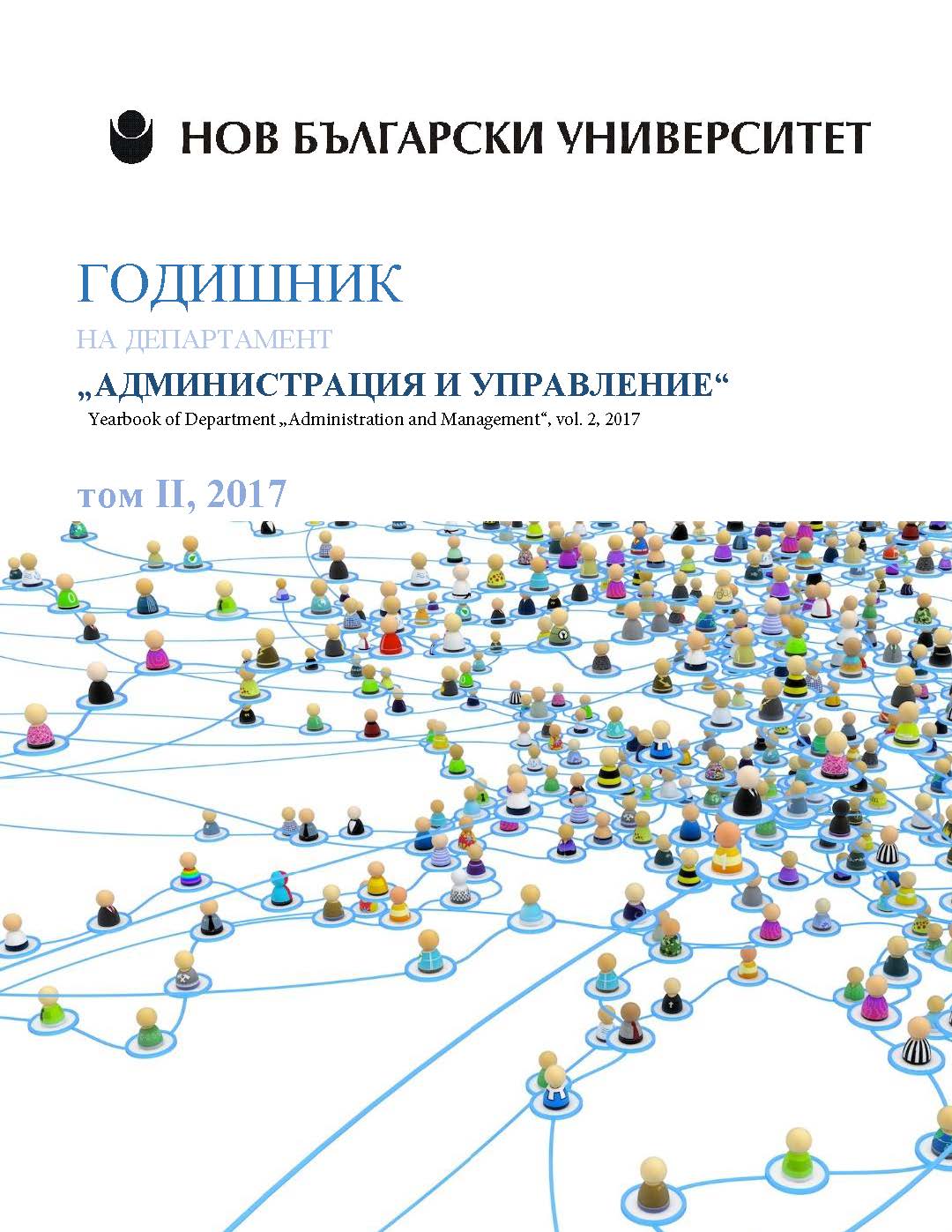
In this article, the subject of research is the impact that globalization has on leadership in multinational companies. The main types of leadership that can be applied in a multinational company are defined with their specifics, benefits and problems - are defined. For this purpose, the model of five determinants (5-D model) by Heerte Hofstede for the measurement and comparison of national cultures and the leadership approach related to talent management is presented. On this basis, own assessments, conclusions and recommendations for enhancing the efficiency of management in a multicultural environment are formulated.
More...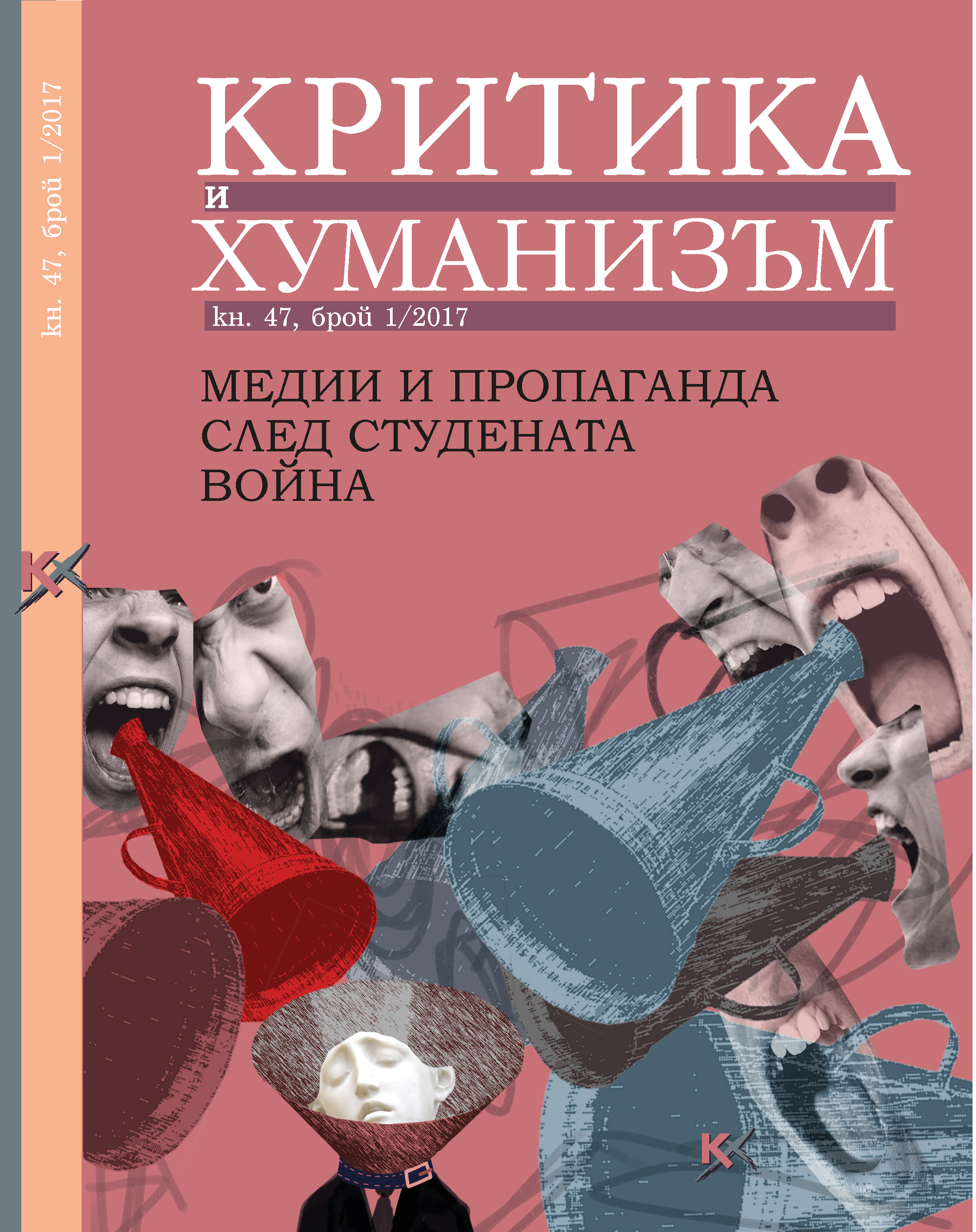
The article uses the technology of web-scraping and social network analysisto track the use of keywords from the language of primarily East Europeananti-liberalism – tolerast, liberast, and sorosoid. A corpus of about 500 webpages containing at least one of the key words serves as empirical material for the analysis. The three keywords extracted from the net a large corpus of anti-liberal texts including a mixture of political and geopolitical topics intertwined with xenophobic, homophobic and plainly vulgar jargon. Word frequency and correlation analysis of the whole corpus and the construction of a bi-partite networkwith webpages and words revealed several thematic fields. The main sources of anti-liberal rhetoric using hate speech do not seem to quote or directly borrow from each other. Most of them maintain a multitopic profile and their relation to kindred spirit web pages can only be discovered through web search.
More...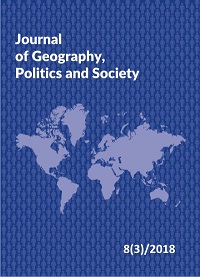
The article is devoted to the health and lives losses resulted from the armed conflict in Ukraine. It shows the real and potential consequences for the social health and determination of major (priority) activity directions and tasks for public health management, with the aim of their minimisation or prevention.
More...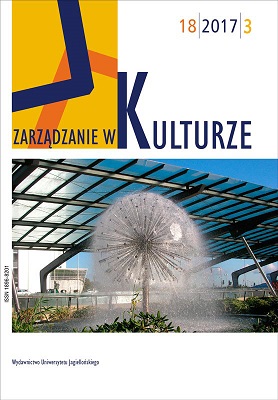
According to many researchers, the cultural policy model based on the arm’s length principle gives public institutions more autonomy than the so-called bureaucratic model. In line with the typology by Hillman-Chartrand and McCaughey (1989), the former is called the “patron model” and implemented in the Anglo-Saxon countries. The latter, dubbed the “architect model,” prevails in continental Europe, including Poland. The aim of this paper is to question the popular belief that the continental model, by definition, has a greater bureaucratic and political influence than the Anglo-Saxon model. For this purpose, the author has analyzed the literature describing the British practice and conducted empirical research in Poland among officials responsible for theaters and directors of public theaters. The results suggest that the difference between the two models in terms of institutional autonomy is not as clear as one could infer from the typology contained in the literature.
More...
In journalistic publications about cultural policy, there is a prevailing conviction that the system change of 1989 put an end to the prosperity and carefreeness of Polish theaters and made managers of these institutions face many new problems, unknown in the days of communism. In this paper, based on the study of community efforts to strengthen the position of theater managers in relations with authorities, I argue that this view is overly simplistic and idealizes the situation of culture in the communist Poland. The prolonged and complex efforts to determine the rules of theater manager’s work – which took more than fifty years (1958–2011) – are like a television “soap opera.” Hence the paper’s title (loosely) alluding to the Polish TV show Dyrektorzy, popular in 1970s, which portrays managers of the socialist industry, although the paper does not contain as many dramatic turns of events. The analysis of the sources shows the unchanging ills of the Polish theatre life, which moved from socialism to capitalism, from dictatorship to democracy. Theatre managers are still forced to negotiate with authorities.
More...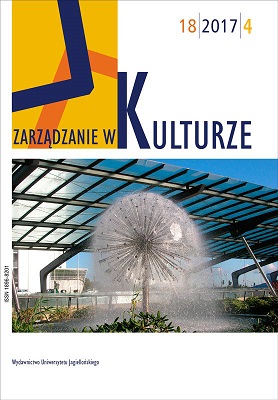
The paper focuses on the cultural policy of the City of Cracow, including its premises and priorities, in the light of the incentives and support provided by the EU programs. Using Cracow as a case study, I make an attempt to show to what extent the European Community has contributed to the Europeanisation of Polish cities by triggering changes in the perception of the role of culture in the development of regions, including changes in the aesthetics of public space, human capital development (talent support, development of the cultural sector staff, development of civil society), quality of infrastructure, and support for creativity and innovation, including the use of new media and new technologies in culture.
More...
Due to the possibility of transmitting information with high speed and precision and acquiring a wider audience, the marketing communication of contemporary Polish cultural institutions should, to a large extent, take place with the help of online tools. A wide array of such tools dedicated to Polish cultural institutions is offered by Google. Therefore, this article aims to identify and analyse selected Google tools used by Polish cultural institutions for marketing communication and to assess the suitability of such tools.
More...
Poland has long been faced with the problem of municipal waste. Because the waste management system in place did not perform as expected, failing to contribute to the construction of waste-handling facilities, to reduce landfill waste volumes and improve the rates of recovered waste materials, in 2011 the Polish Parliament amended the act on maintaining cleanliness and order in municipalities drawing on the experiences of other European countries. The amendment reformed the municipal waste management system and imposed the responsibility for collecting and managing local waste and for financing relevant projects on municipalities. This article is a review of options for funding waste management in Polish municipalities, including dedicated programmes and the possibilities of financial engineering. The present financial perspective has provided local governments with access to various sources of environmental funding. These are mostly EU-funded grants and loans offered through the National and Voivodeship Funds for Environmental Protection and Water Management, Bank Ochrony Środowiska and Bank Gospodarstwa Krajowego. An interesting option is public-private partnerships promoted by the European Commission and Polish government, which can be combined with EU structural funds into so-called hybrid solutions.
More...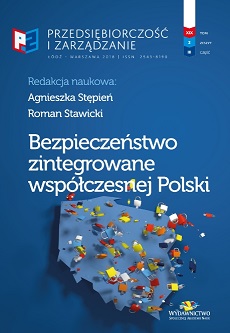
Energy security plays an extremely important role in the creation of geopolitical concepts and strategies of contemporary states. The constantly increasing demand for energy determines the foreign policy of many international entities, which aim at ensuring the continuity of supply at both the lowest possible price and the best quality, to enable the productive use of energy while respecting the natural environment. This thesis is confirmed by the Polish strategy of energy security, which focuses on particular activities such as: ensuring a real diversification, development of the transmission and distribution system and conducting an appropriate storing policy. The Baltic Sea region plays a key role in the Polish energy supply system by creating the possibility for diversification of the supply of strategic resources. Additionally, geographical characteristic of this area is also used to create the superpower policy of the Russian Federation, which uses rich deposits of strategic resources as an instrument of political game.
More...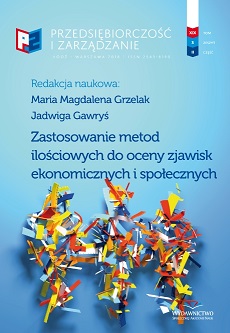
The public procurement system has tools, electronic procedures, enabling the contractor, among others multiple reduction of the price of the offer. The purpose of this article is to submit an electronic auction and electronic bidding as procedures increasing the economic efficiency of the awarded contracts. The article attempts to estimate the degree of use of electronic procedures by the public health service, compared to other contracting entities. Using the available source materials and the tools of mathematical statistics, the share of electronic procedures in contracts awarded in 2016 by the national public health service was estimated. Due to the permanent underfunding of the health service, a research hypothesis has been put forward that the share of electronic procedures in contracts awarded by the public health service is greater than in contracts awarded by other contracting entities, obliged to apply Public Procurement Law.
More...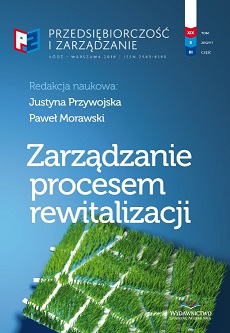
Involving the society in decision-making process strengthens the position of citizens and democracy, and the citizens’ active participation in the life of the city can improve the quality of decisions made by local authorities. Public participation should be fully realized. The aim of the article is to diagnose the level of interest of the inhabitants and the city authorities in the public participation, especially in the revitalization process. The study was conducted in the town of Kalisz among different groups of inhabitants. A questionnaire survey has been used as a research method. The regeneration process in Kalisz can be successful provided the inhabitants are involved. The results of survey show that residents want to be able to influence the decisions of the city authorities, but rarely use these opportunities. The most involved in the city decisionmaking processes are city activists. Nearly half of the respondents value the effectiveness of participatory tools in the revitalization process, but these are primarily those who do not take an active part in public and social life, representatives of city authorities and local government officials. Active non-governmental activists and members of the presidential advisory councils were far more skeptical about influencing the decisions of local authorities.
More...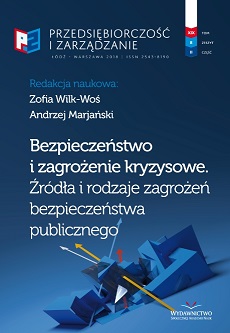
The efficient operation of the transport system plays a significant role in the economy of every country. It enables the proper functioning of all its sectors, pointing to the close coupling between the development of transport systems and economic development. Effective transport enables economic growth. Both in Poland and in the countries of the European Union, the most popular branch of transport is road transport. Polish transport companies occupy a significant position on the market of freight transport in the European Union. It is visible in terms of the fleet of vehicles, employment and the number of transports expressed in ton-kilometers. The result of Polish economic development is also not as high as “consuming” of the transport services. Carriers from Poland widely provide their transport services abroad. The questionnaire form was sent to a large number of transport companies, however, only 30 completed surveys were obtained. During the transport operations in the European Union, drivers encountered various threats. The threats related to criminality predominated. Media-related situations related to mass migration, for example, an attempt to force migrants to hide in the truck as well as blockages on the roads also happened to the drivers from the surveyed enterprises.
More...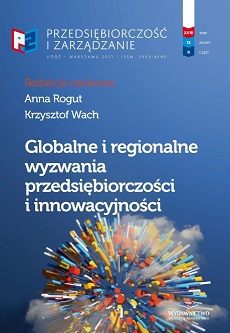
There is undoubtable world-wide trend towards significant social change in a long-run process. It does not result solely from increasing amount of knowledge and broad access to information, but rather from gradual understanding of interdependence of entities that create, exchange and use knowledge to form socially, politically and economically conscious, competitive but sustainable states. The research presented in the article concerns cooperation in the research and development sector (R&D) in Poland. It includes current trends in innovation policies, including changes in scientific sector towards cooperation with the external environment (enterprises, public administration) and the meaning of cross-sector partnerships. The author assumes that cross-sector partnerships are crucial for development of state innovative potential. The goal of the article is to identify critical conditions for undertaking cooperation of entities that represent research and development sector (including universities), regional public administration and entrepreneurs, creating cross-sector partnerships. The author based her research on an institutional analysis, rational choice theory, as well as new institutional economics, and structuration theory. The qualitative research is based on in-depth interviews with representatives of the above-mentioned sectors in Poland. The outcome of the research tentatively indicates that: (1) there exists interdependence between the level of trust, social capital and propensity to cooperate; (2) the most critical conditions for cooperation are: system and legal solutions, financial resources and support, and cultural determinants.
More...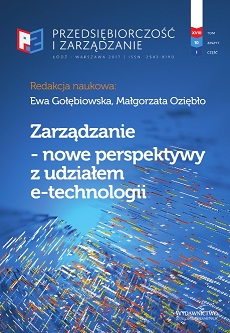
The development of e-government in the information economy leads to an increase in the use of mobile applications and online platforms to manage a growing number of areas within the public authorities. The use of information technology contributes, among others, to increase in social involvement in urban space management, as verified by the CiTTybialystok application example. Digitization of relationships facilitates bilateral contact, and does not serve, like the radio, television or the press, only to inform citizens about certain events or activities of the authorities. Using the available literature, the author analyzed data on the information economy, information technology, e-government and tools used in it, and on the basis of the case study – the use of the application as a communication tool for citizens living in urban areas. The article verified the validity of the claim about the increase in the use of information technology for conjugated contact: office - residents. The subject of the analysis was the functioning of the CiTTybiałystok application. In Bialystok there is a growing number of residents using electronic contact with the office. The digital channel contributes to improving the efficiency and increased response speed of city services. The use of the application results in better efficiency of urban space management.
More...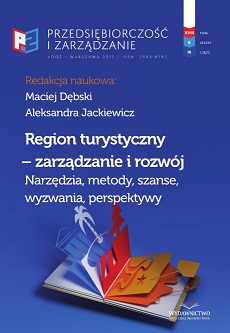
Integrated territorial investments in Poland were established within the framework of the European Union financial perspective for 2014-2020. It is an instrument of the EU structural policy which allows to implement a closer and therefore more rational investment policy in bordering areas of the administrative units and territorial structures of a given country. Under this instrument, the authors will analyze the management of the ITI within the Warsaw metropolis, assumptions, results and development opportunities, with some references to the tourism area.
More...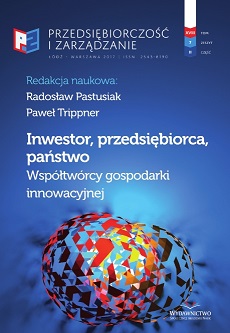
The subject of the present paper is the competitiveness of cities of eastern Poland that compete in acquisition of foreign investments. The development of processing occurring in these cities is characterized by changeability. Factors that influence competitiveness of destinations should be measured together with the intensity of their action. The competitiveness of the cities is accomplished by the pace of economic development, access to qualified workforce, office spaces, rental prices, support of local government or presence of natural resources. The aim of the paper is to present the macroeconomic data of two cities: Lublin and Rzeszów, and to present actions that their local governments undertake to improve their competitiveness in acquiring foreign investments. For research, cities were chosen deliberately due to comparable levels of economic development and competition for foreign investment. Cities are located in Eastern Poland.
More...
One of the most important elements of social and economic life is health along with its proper protection. The responsibility for organizing the healthcare system lies with the state authorities. Polish health care system over the years has undergone transformation which was the result of intervention by governmental authorities in order to cope with the current problems. Dynamically implemented changes in the functioning of health care negatively affected the entities participating in the system which manifests in an annual increase of total liabilities. The aim of the following article is to verify the effect of the impact of transformations of organizational and legal forms of medical entities from 2004 to 2016 on the state of public health liabilities. For the purposes of this article the following hypothesis was made: The application of transformations of organizational and legal form of SP ZOZ in 2004-2016 in order to improve the financial situation of medical entities fulfilled its role in short-term optimization of their debt in the voivodships which most often used statutory mechanisms. The analysis confirmed the hypothesis that in voivodships where the organizational and legal form of SP ZOZ was transformed into commercial law companies, the sum of public liabilities of the health sector in these voivodships was optimized.
More...